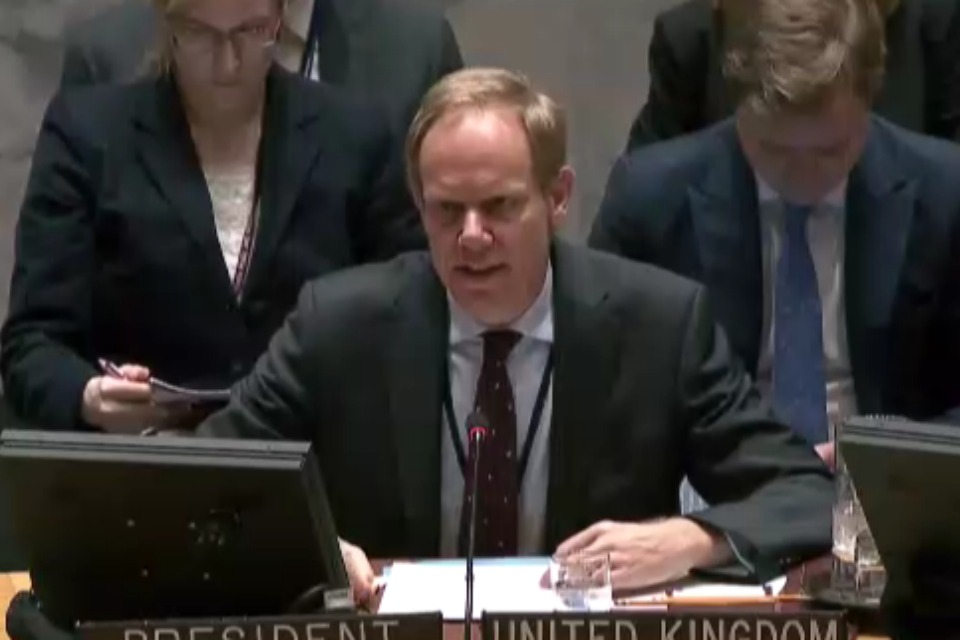UN Security Council emergency debate on North Korea: Matthew Rycroft's speech
UK Permanent Representative to the UN Matthew Rycroft condemns North Korea's nuclear test and calls for greater measures to resolve crisis.

Thank you Mr. President,
This is the sixth time that the Security Council has come together to condemn a nuclear test by North Korea. It’s the sixth time that the world has held its breath. North Korea is the only country in the 21st century to have conducted such tests, against all international standards of behaviour.
In addition, we have met many times in recent months following other North Korean provocations, most recently, just last week in response to its reckless missile test over Japan. Yesterday’s nuclear test explosion was by far the largest yet. Combined with the increasing range of its missiles, North Korea poses a threat not simply to its region but truly to global peace and security. This latest test has been rightly condemned already by most of the governments represented here today.
UN Security Council debate on North Korea
We have passed eight sanctions resolutions on North Korea. The country is subject to the most stringent sanctions currently applied by this Council. Yet still North Korea continues to put its illegal missile and nuclear programmes ahead of international law, international security and the will of this Council. This is a disturbing and unprecedented situation. Rarely has a state remained so defiant in the face of overwhelming international condemnation, and repeated, powerful rounds of sanctions.
It is clear that existing sanctions applied by the Security Council on North Korea are having an effect. In particular, the measures against commodity exports and the financial sector, applied since 2016, are making it harder and harder for Pyongyang to acquire the hard currency necessary to fund its programmes. Each day that gets harder still, thanks to the efforts of many states around this table.
Those who doubt this impact need only read the statements coming from the North Korean regime. They rail against the sanctions that we have placed upon them. But it is also clear that DPRK is uniquely willing to put their illicit programmes ahead of the wellbeing of its people. Those people suffer appalling repression, and struggle even to feed themselves. The leadership of North Korea has chosen this path of defiance at great cost
Faced with this unique threat to international peace and security, the Security Council must condemn this test and the entire North Korean nuclear and missile programme.
We continue to wish for a peaceful way forward. Dialogue will always be our end goal. But returning to dialogue without a serious sign of intent from Pyongyang would be a set up to failure. North Korea must change course to allow a return to dialogue. Were they to do so, the opportunity exists to end this crisis. Until that moment, we must stay the course on sanctions, and continue, as the Secretary-General has called for, to present a united front.
I said when we met last week that the United Kingdom believed a new UN Security Council Resolution was required in response to North Korea’s dangerous and illegal test flight of a missile over Japan. In light of yesterday’s nuclear test, our resolve to act has increased still further. We must increase the pace of implementation of existing sanctions and work rapidly towards the adoption of a new and effective Resolution.
While continuing to enforce the measures this Council has already agreed, we should go further by taking steps to sever the funds on which the regime relies in order to pursue its illegal and destabilising programmes. We should not least further restrict the unethical exploitation of North Korean workers overseas.
Mr President, North Korea has created a deeply dangerous and unstable situation. The United Kingdom will work with our partners on this Council and beyond to tackle the challenge. I urge all states to join us.